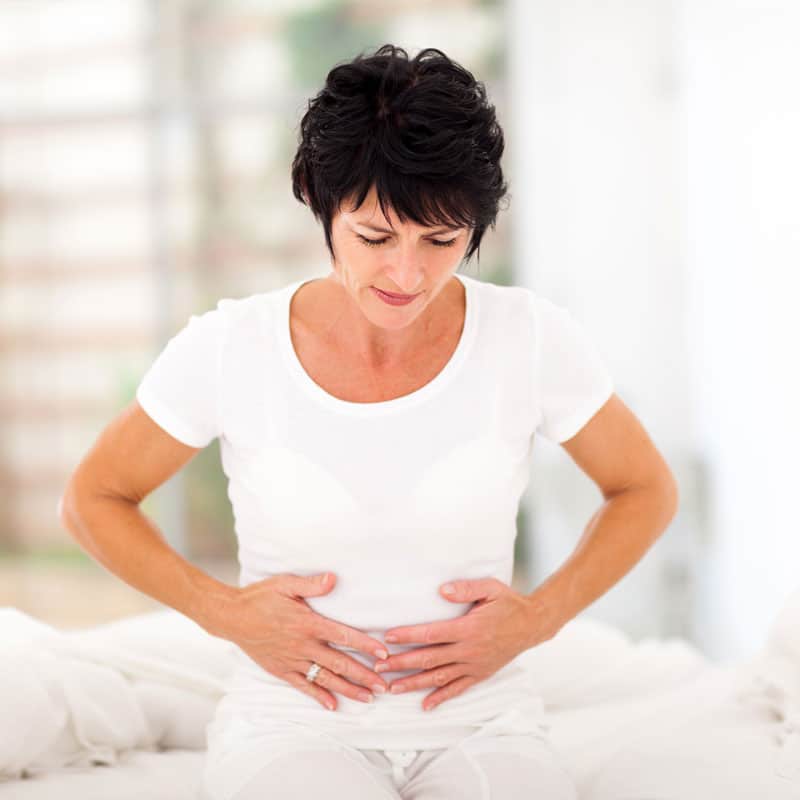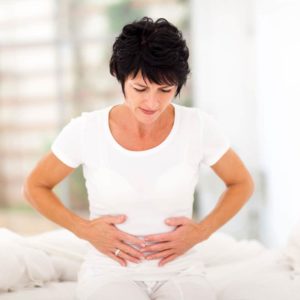index
Sexual satisfaction is an integral part of a woman’s physical and mental health. Throughout a woman’s life, her sexual desire will have highs and lows. Significant life changes like menopause, illness, and pregnancy can affect desire and result in low sex drive in women. In addition to this, medication, nutrition, and a woman’s mental health can impact libido or sexual desire.

Symptoms of Low Sex Drive
If you do not want to have sex as often as your partner, you may wonder if you have a low sex drive. The simple answer is everyone’s sex drive is different. Here are the top symptoms:
- You have little to no interest in any sexual activity
- You never have any sexual thoughts or fantasies
- You are concerned about your low sex drive.
Causes of Low Sex Drive in Women
Here are five common causes of low sex drive in women and how you can renew your arousal and desire.
Thyroid Conditions Can Affect Libido
Thyroid disease and sexual dysfunction, including decreased desire, go hand in hand. Studies have shown that both hyperthyroidism and hypothyroidism can increase the risk of sexual dysfunction by as much as 77 percent. Thyroid disease can increase vaginal lubrication, decrease testosterone levels, and lead to fatigue and depression. Each of these can cause your sex drive to become lower.
You can improve your thyroid by practicing healthy lifestyle choices. First, get at least 30 minutes of exercise daily. You will also want to ensure you eat the recommended amount of iodine. The body uses iodine to produce thyroid-stimulating hormones to activate the thyroid gland. Finally, avoid eating foods that can suppress thyroid production. Avoid cruciferous veggies like broccoli, cauliflower, and cabbage. You should also avoid soybeans, watercress, kale, and peanuts if you have a thyroid issue.
Low Libido and Unbalanced Hormones
Hormonal imbalances can cause a loss of libido. Individuals commonly experience low libido during perimenopause, menopause, and andropause. Between the ages of 40 and 55, your hormones naturally begin to decline, which can cause an imbalance of testosterone, progesterone, or estrogen, leading to a loss of desire, sexual drive, and sexual energy.
Properly balancing your hormones will help improve low sex drive. A healthy diet with fresh fruits and vegetables, lean proteins, and healthy omega-3 fatty acids can restore hormone health. Avoid sugar and other inflammatory foods, as they can disrupt hormone production. Get at least 7 hours of sleep each night and exercise daily to help rebalance your hormones.

Stress Sex Connection
Stress is a frequent cause of low sex drive. Many different stressors can affect your overall health and impact your sex drive, including:
- Financial problems
- Work stress – long hours, hostile work environment, or underappreciation at work
- Relationship issues – lack of communication, lack of emotional support, unaddressed issues in your relationship
- Family problems – parenting issues, not enough support with housework and childrearing
Stress can affect your sexual health and well-being. If you are experiencing any of these issues, try to reduce your stress. Ask for help with household chores, prioritize your time, and learn how to get out of debt. If you have relationship issues, address them and seek out counseling. Finally, talk about your low libido. Soon, you will discover you are not alone.
Nutritional Deficiency and Low Sex Drive
If your body is not getting the nutrients that it needs, it can affect all aspects of your life, including your sex drive. Here are five critical nutrients that can impact your libido.
- Zinc – Zinc is necessary for testosterone production.
- Omega-3 fatty acids – Your body reduces inflammation, improves mood, and increases hormone production with the help of omega-3 fatty acids.
- Vitamin D—Approximately 42 percent of American adults have a vitamin D deficiency, which can decrease estrogen and testosterone production.
- Vitamin B12 – B vitamins support hormone function, mood regulation, and stress levels.
- Magnesium – Magnesium increases dopamine levels and testosterone levels.
Eating a healthy diet filled with nutrient-dense foods can help restore sex drive. Zinc-rich foods include oysters, other seafood, nuts, dairy products, and beans. Healthy fats like avocado, olive, and coconut contain Omega-3 fatty acids. You can increase your vitamin D levels by spending some time outdoors. Animal products such as milk, eggs, fish, and poultry contain Vitamin B12. Finally, magnesium foods include flaxseed, cashews, and cooked beans. Eating a healthy diet and taking a vitamin and mineral supplement ensures your body has the nutrients for balanced hormones and a healthy libido.

Mood Disorders Can Impact Libido
If your sex drive has decreased, it could be a sign of a severe mood disorder like depression. One of the primary symptoms of depression is no longer enjoying things that you once enjoyed, including sex. Those who suffer from depression experience low energy levels, have low self-esteem, and may even view their partner negatively. The other symptoms of depression include decreased appetite, concentration difficulties, weight changes, and feelings of sadness.
If depression is affecting your libido, the first thing you should do is to talk with your partner. During this talk, the two of you should redefine what intimacy means. Hold hands, spend time enjoying one another’s company, and snuggling can help improve your mood and, ultimately, improve your sex drive.

Low sex drive in women can be affected by many things, including thyroid issues, hormone imbalances, nutrition deficiency, mood, or elevated stress levels. Our functional medicine doctors specializing in women’s health can help. Every aspect of your life, including physical, mental, emotional, environmental, social, and spiritual, can affect your health and is considered when developing a treatment plan. If you have a low sex drive, you are not alone, and the situation is not hopeless. Follow our advice and begin enjoying and desiring sex again.




















